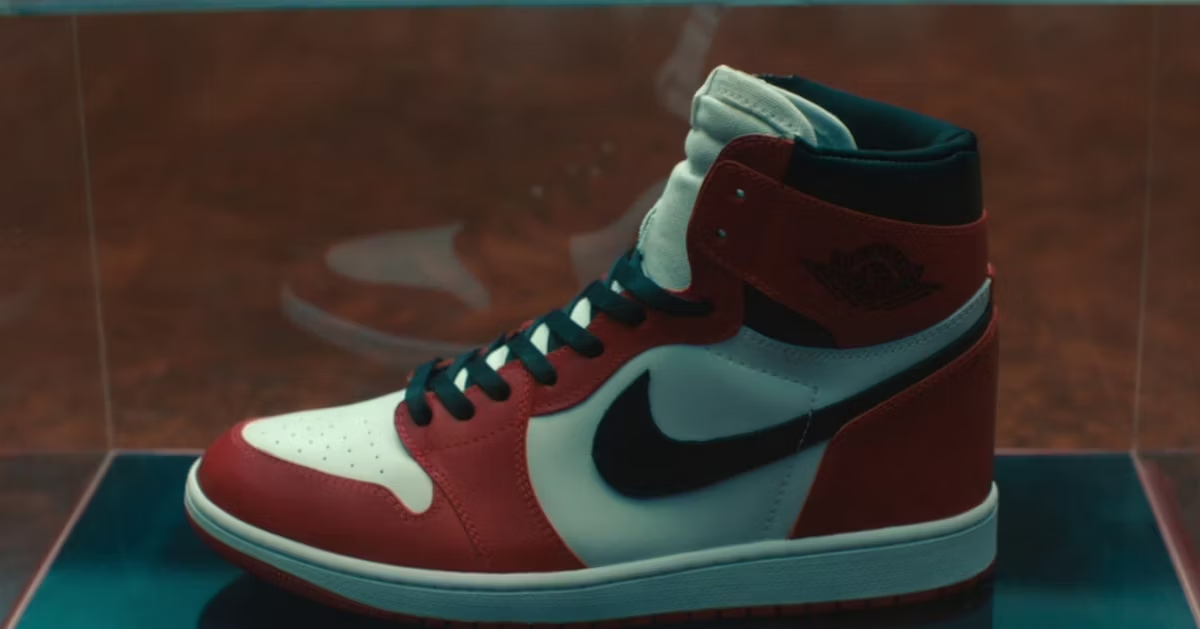Last week, I was at the gym and noticed a clip from “Barbie” playing on one of the TVs. It was a clip of a car chase in which Barbie, Gloria, and Sasha escape from Mattel executives. I thought it was an odd choice for a promotional clip. It’s one of the film’s weakest sequences, not least of all because I thought it looked like a car commercial. My theory was validated when a few seconds later the clip revealed itself to actually be a Chevy commercial, one that didn’t even bother to edit the clip because Greta Gerwig and company had already done the grunt work.
Product placement is nothing new in movies — think of the eye-rolling incorporation of Taco Bell into “Demolition Man” or Bud Light into “Transformers: Age of Extinction.” Focusing your film on an actual company or product isn’t new either — one of the best films of the 21st century so far is about the rise of Facebook. But this year feels different in the number of movies based on products.
This prevalence shouldn’t be too much of a surprise. Hollywood’s unquenchable thirst for milking every last dollar of whatever intellectual property they can get their hands on was always going to lead to this. Audiences would get tired of C-tier superheroes and 10th sequels in middling action franchises at some point, but studios would still need IP to put butts in seats. Thus, we get films like “Flamin’ Hot” about the creation of a type of Cheetos or “Air” about how Nike created the most famous shoe on the planet thanks to the greatest basketball player of all time. It’s hard to blame these films for taking advantage of industry circumstances to get made. The filmmakers aren’t starting from a cynical standpoint of trying to sell the audience something, they just want to work. And indeed, sometimes the material is handled so earnestly that it becomes endearing. “Air” might be the most cynical piece of commercial filmmaking of the decade, but you can feel how much Ben Affleck cares about the subject matter that you almost buy into the corporate mythologizing. Almost.
It’s important to take a critical eye to these types of films. Even if they contain hints of talent and quality, maybe even greatness on a technical or performance level, these product movies are still cynical pieces of consumerist trash at their core. Sometimes they are explicitly embarrassed by that fact and try to deflect by making self-aware jokes at the company’s “expense.” This is the route “Barbie” took, with Greta Gerwig taking soft shots at Mattel and Barbie’s status as a symbol of consumer culture and the negative impacts it has on women. But all of this draws attention to the film’s status as corporate product rather than absolving it. It isn’t biting enough to make any meaningful statement about consumerism, and it ends up feeling more like a commercial than it would have had the film not acknowledged that aspect of its being at all.
One product film has been able to stand out among the rest this year and reach a level of greatness these types of films are often inherently incapable of reaching: “BlackBerry.” Part of that is because you can’t buy the product the film is about anymore, which takes away the feeling that the movie is trying to sell you something, but more importantly, the film’s tone is bleak, terrifying, and transgressive. “BlackBerry” doesn’t treat its company executives as innovative heroes, it treats them as the pathetic, exploitative, tyrannical assholes they are. While product films can use earnestness to be endearing, they need that biting satirical angle to be truly great works of art. That’s what “The Social Network” knew over a decade ago, and that’s what “BlackBerry” knows now.
If the industry is going to continue with this trend of movies based on toys, clothes, and snacks — and based on the reports of the projects Mattel currently has in the pipeline, it looks as though they will — they need to start taking the route of “BlackBerry” and challenge the corporations that make and sell these products. But, that will never happen. The companies that these films are based on are too involved in the productions, too controlling of their image. Gerwig can find as much of her voice in “Barbie” as she can, but she’s limited in what she can say by what Mattel (and Warner Bros. to a lesser extent) will let her get away with. She doesn’t go soft on the film’s consumerist roots because she wants to, she does it because she has to. That’s no way to make great art, but it will help make a lot of money.

